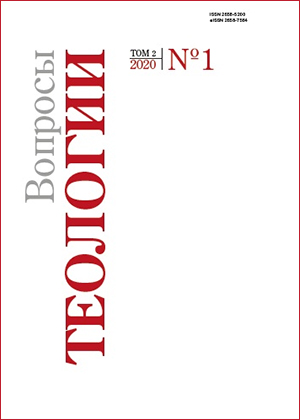Ways of post-metaphysical thinking about God
DOI:
https://doi.org/10.21638/spbu28.2020.111Abstract
In the conversation, various strategies of theological thought of the second half of the 20th and the beginning of the 21st centuries are considered, which are characterized by a repulsion of the old metaphysical concept of God as, above all, a higher being. Against the background of criticism of such onto-theological theology undertaken by Martin Heidegger, various theological directions arise and develop, within the framework of which the boundary between philosophy and theology, established by default in the Modernity, is blurred. In the monograph of Svetlana Konacheva, the discussion of which is devoted to the conversation, the Russianspeaking reader encounters the positions of such authors as Eberhardt Jungel, Bernhard Welte, Wilhelm Weishedel, Heinrich Ott, John Caputo, Richard Kearney, as well as modern Orthodox philosophers and theologians David Bentley Hart and John Panteleimon Manussakis. The post-metaphysical thinking that these authors demonstrate is considered in connection with traditional Christian dogmatics. It touches on issues related to the phenomenological and hermeneutic approaches, as well as topics of religious language and the significance of deconstruction for theological thought. The influence of not only Heidegger, but also Hegel, as well as Jacques Derrida, is discussed. The conversation introduces into the problem areas of modern theological thought that are not well-known to the domestic reader.
Keywords:
philosophy, theology, phenomenology, hermeneutics, post-metaphysical thinking, religious language, Heidegger, impossible, weak theology
Downloads
References
References
Downloads
Published
Issue
Section
License
Articles of "Issues of Theology" are open access distributed under the terms of the License Agreement with Saint Petersburg State University, which permits to the authors unrestricted distribution and self-archiving free of charge.




